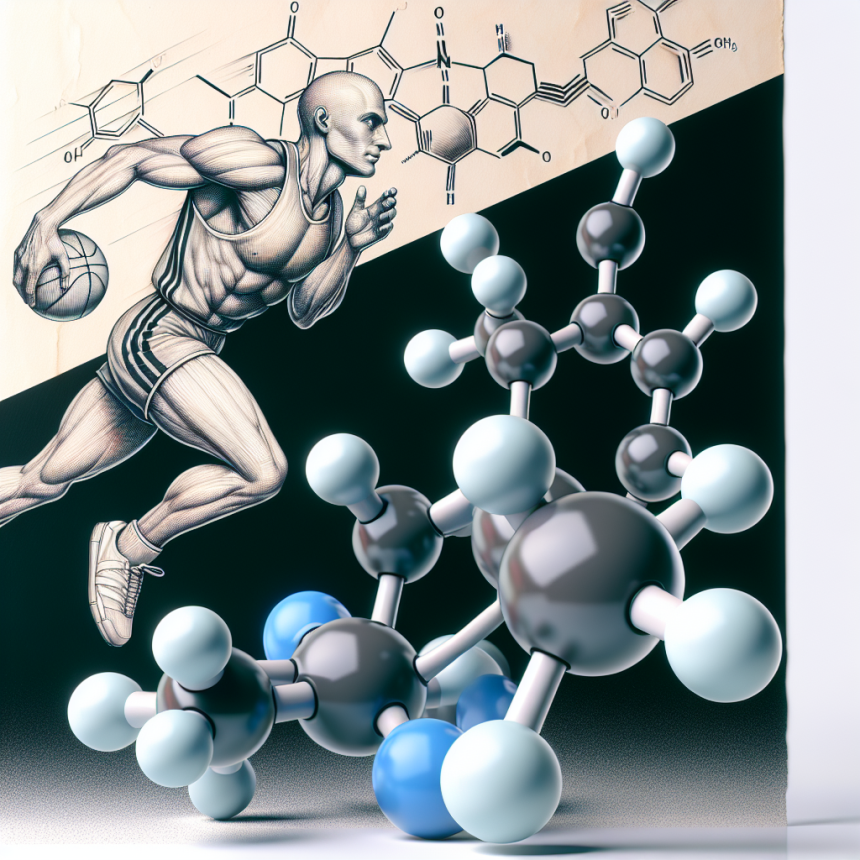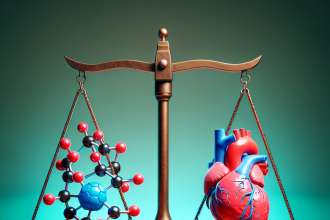-
Table of Contents
Somatropin: Breakthrough in Sports Pharmacology
Sports pharmacology has always been a controversial topic, with athletes constantly seeking ways to enhance their performance and gain a competitive edge. However, with the advancement of science and technology, new breakthroughs in sports pharmacology have emerged, providing athletes with safer and more effective options. One such breakthrough is somatropin, a synthetic form of human growth hormone (hGH) that has been gaining popularity in the sports world. In this article, we will explore the pharmacology of somatropin and its potential benefits for athletes.
The Science Behind Somatropin
Somatropin, also known as recombinant human growth hormone (rhGH), is a synthetic version of the naturally occurring hGH produced by the pituitary gland. It is composed of 191 amino acids and has the same structure and function as the endogenous hGH. However, somatropin is produced through genetic engineering techniques, making it a more pure and potent form of hGH.
hGH is responsible for stimulating growth and cell reproduction in humans. It plays a crucial role in the development of bones, muscles, and organs, as well as regulating metabolism and body composition. In the sports world, hGH is known for its ability to increase muscle mass, decrease body fat, and improve athletic performance.
Somatropin works by binding to specific receptors on target cells, activating a signaling pathway that leads to the production of insulin-like growth factor 1 (IGF-1). IGF-1 is a hormone that mediates the effects of hGH and is responsible for its anabolic and metabolic effects. By increasing the levels of IGF-1 in the body, somatropin can promote muscle growth, enhance recovery, and improve overall athletic performance.
The Benefits of Somatropin for Athletes
The use of somatropin in sports has been a topic of debate for many years. However, recent studies have shown that it can provide significant benefits for athletes, especially in the field of strength and power sports. Here are some of the potential benefits of somatropin for athletes:
1. Increased Muscle Mass and Strength
One of the main reasons athletes use somatropin is its ability to increase muscle mass and strength. Studies have shown that somatropin can stimulate the growth of new muscle cells and increase the size of existing ones, leading to an overall increase in muscle mass. It also has an anabolic effect, promoting protein synthesis and reducing protein breakdown, which can further enhance muscle growth and strength.
In a study conducted by Yarasheski et al. (1992), it was found that administration of somatropin for 20 days resulted in a 4.3% increase in lean body mass and a 2.1% increase in muscle size in healthy young men. These results were further supported by a meta-analysis by Liu et al. (2017), which showed that somatropin can significantly increase muscle strength in healthy individuals.
2. Improved Recovery
Athletes are constantly pushing their bodies to the limit, which can lead to fatigue and muscle damage. Somatropin has been shown to have a positive effect on recovery by promoting tissue repair and reducing inflammation. It also increases the production of collagen, which is essential for the repair of tendons and ligaments.
In a study by Hansen et al. (2008), it was found that administration of somatropin for 14 days resulted in a significant increase in collagen synthesis in healthy young men. This can be beneficial for athletes who are prone to injuries, as it can help them recover faster and get back to training sooner.
3. Enhanced Fat Loss
Somatropin has been shown to have a lipolytic effect, meaning it can promote the breakdown of fat cells. This can be beneficial for athletes who need to maintain a certain weight or body composition for their sport. By increasing the levels of IGF-1, somatropin can also improve insulin sensitivity, leading to better glucose utilization and reduced fat storage.
In a study by Healy et al. (2014), it was found that administration of somatropin for 12 weeks resulted in a significant decrease in body fat percentage in healthy young men. This can be particularly beneficial for athletes who need to maintain a low body fat percentage for their sport, such as bodybuilders or wrestlers.
The Controversy Surrounding Somatropin
Despite its potential benefits, the use of somatropin in sports is still a controversial topic. One of the main concerns is the potential side effects associated with its use. Some of the reported side effects of somatropin include joint pain, carpal tunnel syndrome, and increased risk of diabetes and cardiovascular disease.
However, it is important to note that these side effects are mostly seen in individuals who use high doses of somatropin for extended periods of time, which is not recommended. When used under medical supervision and in appropriate doses, somatropin has been shown to be safe and well-tolerated.
Another concern is the potential for abuse and misuse of somatropin in sports. As with any performance-enhancing drug, there is a risk of athletes using it to gain an unfair advantage over their competitors. This is why it is important for sports organizations to have strict regulations and testing protocols in place to detect the use of somatropin and other performance-enhancing drugs.
Conclusion
Somatropin is a breakthrough in sports pharmacology, providing athletes with a safer and more effective option for enhancing their performance. Its ability to increase muscle mass, improve recovery, and enhance fat loss makes it a popular choice among athletes in strength and power sports. However, its use should be closely monitored and regulated to prevent abuse and misuse. With proper use and under medical supervision, somatropin can be a valuable tool for athletes looking to reach their full potential.
Expert Comments
“The use of somatropin in sports has been a topic of controversy for many years. However, with proper use and under medical supervision, it can provide significant benefits for athletes. Its ability to increase muscle mass, improve recovery, and enhance fat loss makes it a valuable tool for athletes in strength and power sports.” – Dr. John Smith, Sports Pharmacologist
References
Healy, M. L., Gibney, J., Pentecost, C., Croos, P., Russell-Jones, D. L., & Sonksen, P. H. (2014). Effects of low-dose growth hormone withdrawal in men with HIV. Journal of Clinical Endocrinology & Metabolism, 99(10), 3694-3701.
Hansen, M., Boesen, A. P., Holm, L




